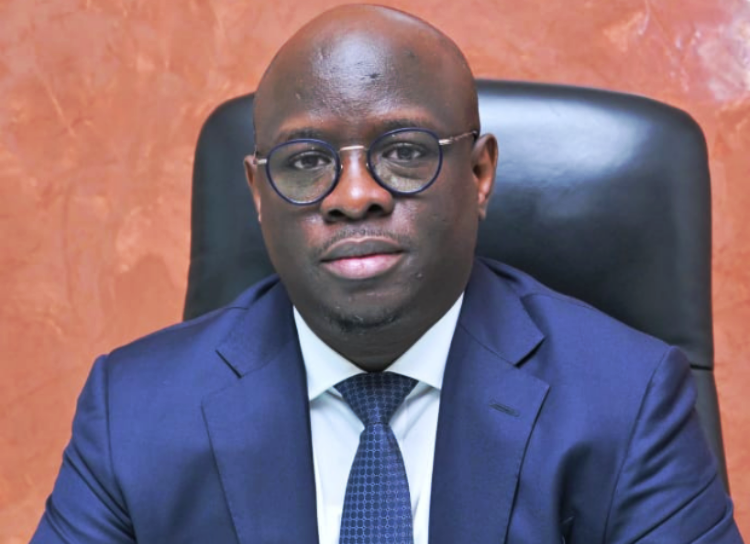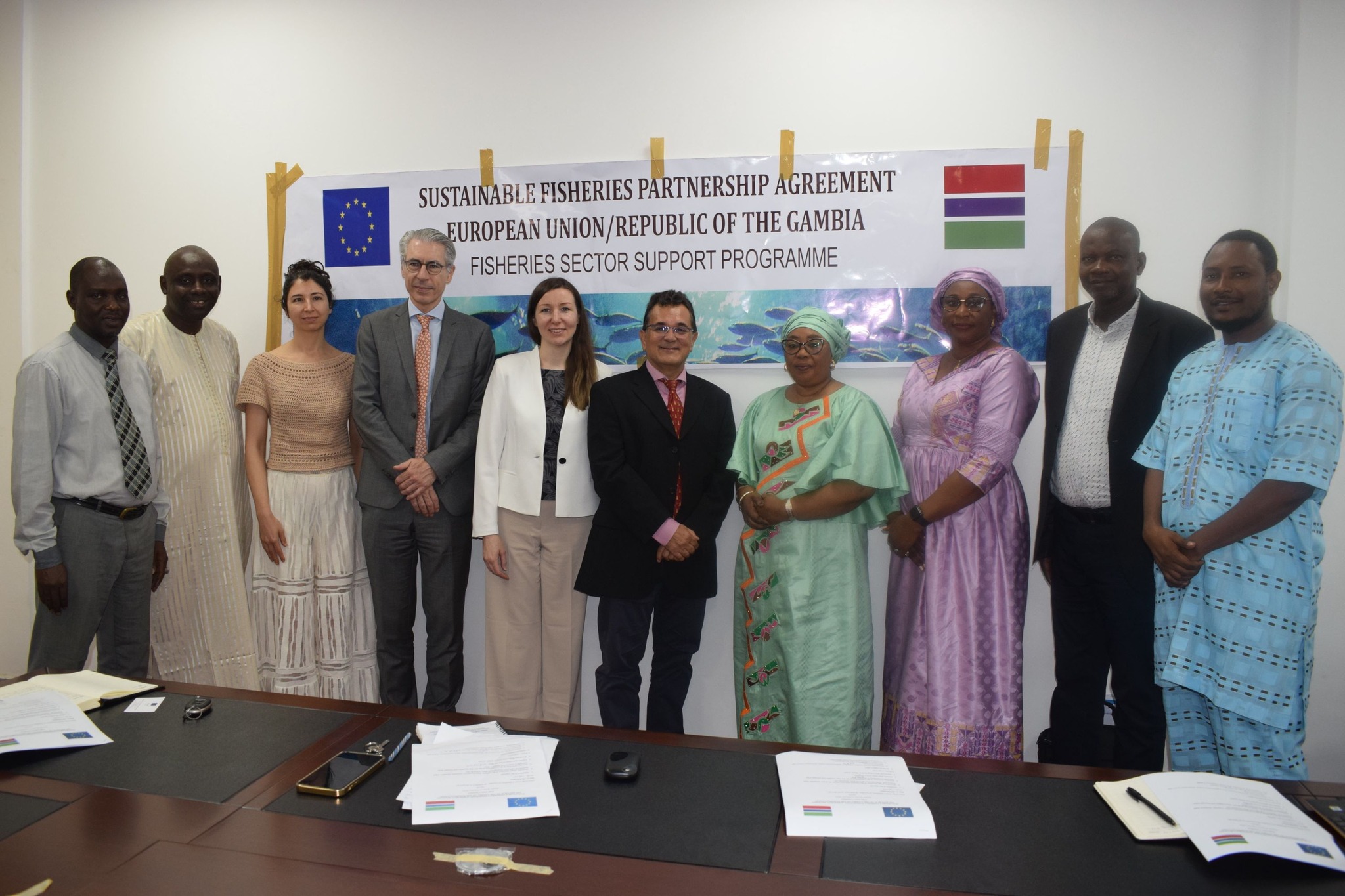The Fisheries Department of The Gambia and the European Union convened the 5th joint committee meeting on the Sustainable Fisheries Partnership Agreement on Tuesday, February 20, 2024. The two-day meeting aims to discuss various aspects of fisheries management, including economics and science dealings between the parties.
The Sustainable Fisheries Partnership Agreement, initially signed in 2019, outlines the conditions for EU vessels to fish in Gambian waters. It also promotes economic, financial, technical, and scientific cooperation in the fisheries sector, ensuring effective management, control, and surveillance measures. Additionally, it fosters partnerships for economic development in the fisheries sector, with EU vessels mandated to fish only the surplus of allowable catch based on scientific advice.
Madam Anna Mbenga-Cham, the director of Fisheries, emphasized the meeting’s significance, highlighting years of shared effort, mutual respect, and cooperation. She emphasized the importance of collective knowledge in guiding discussions toward a more resilient and fair future for fisheries management.
Malang Darboe, the deputy Permanent Secretary for Finance and Administration at the Ministry of Fisheries, Water Resources, and National Assembly Matters, praised the dialogue and commitment of both the Gambian government and the EU in protecting waters and promoting economic growth and community well-being.
Conservation activists riled up
One notable and recurrent issue in the discussions is the absence of ocean resources conservation activists. One of them, Lamin Jassey, an environment defender based in Gunjur, responded to the bilateral talks by saying, “The European Union delegation in The Gambia is already aware that the coming agreement is a loose game for The Gambia.” Lamin Jassey claims that the Gambia lacks the ability to negotiate and has neither fish nor money to give the European Union. According to the environmental activist, the goal of the upcoming deal is to guarantee that “economic slavery continues to compromise Gambian livelihoods.”
What was the 2019 Fisheries agreement about ?
The Sustainable Fisheries Partnership Agreement (SFPA) signed in 2019 between The Gambia and the European Union (EU) involves a partnership mainly focused on tuna fishing, with a small part related to other fish that live near the ocean floor (demersal fish). Here’s a breakdown of some key points:
The EU pays The Gambia €550,000 every year for 6 years. Out of this, €275,000 is specifically designated to support The Gambia’s fisheries policy, which aims to ensure fishing in its waters is sustainable.
Ship owners pay fees based on the type of fish they catch. For tuna, they pay €70 for every tonne caught, and for hake, they pay €75 per tonne caught. Ship owners receive advances to help with their expenses. For tuna seiners (boats that use nets to catch tuna), the advance increases by €4,200 per year, based on a reference catch of 60 tonnes. For pole-and-liners (boats that use a single line with multiple hooks to catch fish), the advance increases by €1,400 per year, based on a reference catch of 20 tonnes. Trawlers (boats that use large nets to catch fish) receive €500 every trimester (three-month period).
Ship owners also pay additional fees, such as €300 per year for observers who monitor fishing activities and €2,000 per year for a support vessel, with no prorated payment based on time. There is also a limit of 3,300 tonnes of fish that can be caught each year under this agreement.
Meanwhile, the Wednesday meeting, chaired by Fanta B. S. Manneh, deputy permanent secretary at the Ministry of Fisheries, Water Resources, and National Assembly Matters, underscores the continued commitment of both parties to sustainability, equity, and inclusivity in envisioning thriving oceans and prosperous communities for future generations.










